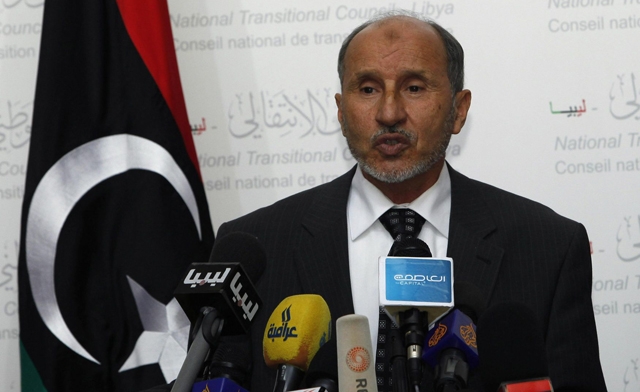

Mustafa Abdul Jalil, Ghadafi’s former Justice Minister and current head of the “National Transitional Council” of Libya, has rejected both “fundamentalist Islam” and “secularism”, and declared in his first speech that the government of Libya will be a “modern and democratic” one based on “moderate Islam and sharia law”. In other words, he promises the people of Libya a government like Karzai’s in Afghanistan.
This is not what the people of Libya have risen up for. The Ghadafi regime was also a form of “moderate Islamic government”. The promised government of Mr Abdul Jalil can only be as “modern and democratic” as Ghadafi’s regime. Ghadafi’s ex-Justice Minister may not have a problem with this but those masses of people who, for more than 6 months, fought heroically and forced the dictator to flee, are not going to be satisfied with another version of the same government.
Clearly, this is the prescribed desirable alternative for Western governments too. One objective of NATO’s military involvement was to put in place a Karzai-type government as the “fruits” of the Libyan revolution, and now, the task of assembling such a government has been delegated to Ghadafi’s former minister, in the same way that this role has been given in Egypt to Mohammed Hussein Tantawi, an ex-Mubarak general.
Facing the remnants of the overthrown regimes and their Western government cohorts are the people who have risen up and demanded prosperity, freedom, equality and a humane life. Islam, of any kind, is fundamentally antithetical to these demands and wishes of the people. No one understands this better than the people of Iran who have lived under the yoke of Islamic rule and Sharia law for more than 30 years.
Our message to the people of Libya and other countries who have risen up is this: Do not allow Islam – be it “moderate,” “fundamentalist,” or with any other label – in the government, educational system and judiciary. Secularism is a basic prerequisite for securing freedom, welfare, and respect for human beings and humanity in any society. Particularly in the current revolutions in Islam-ridden societies – from the 2009 revolution in Iran through to the Tunisian, Egyptian, Libyan, and Syrian revolutions – a commitment to secularism is a fundamental precondition to any form of freedom-seeking, and is an important indicator for differentiating revolutionary forces from reactionary ones.
We must be hopeful and resolutely support the continued struggle of the people of Libya, like of Egypt, in standing up against the reactionary front of the transitional government put together by Western governments, Islamists, and the remnants of toppled regimes until the achievement of “bread, freedom, and human dignity.”
Worker-communist Party of Iran
13 September 2011

Be the first to comment